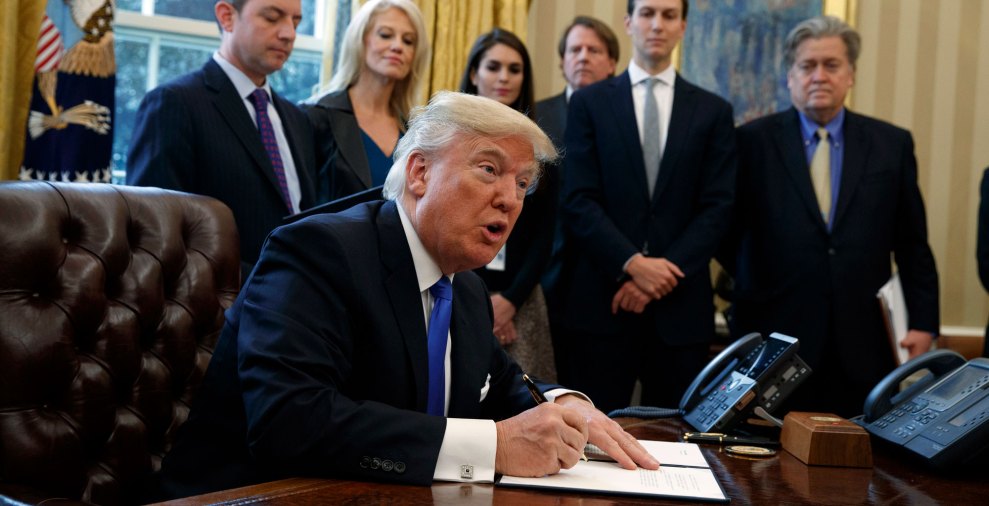| |
Sweden’s rejection of the euro has consequences far beyond its borders. The “no” vote strengthens the hand of anti-euro activists in Britain and Denmark, the only other two E.U. countries holding out against the single currency. British P.M. Tony Blair says he won’t rule out putting the issue to a referendum in 2005. Which isn’t to say he’ll rule it in.
The margin of victory for the “no” camp, 56 to 42 percent, was larger than expected, although the Swedes have a history of nixing referenda.
After the recent murder of pro-euro Foreign Minister, Anna Lindh, it looked like Swedes might cast a sympathy “yes” vote. But in the event, 81 percent of the population turned out to stick it to pro-euro Swedish prime minister Goran Persson.
Among the faultlines exposed by the vote, the euro campaign showed a rift between, on one hand, mainstream Swedish political parties and big businesses, who support the euro, and, on the other, trade unions and “ordinary people,” who oppose it. A big roadblock turned out to be the E.U.’s insistence that euro-using states sign on to a “stability pact” requiring them to hold deficits at less than three percent of GDP, on pain of steep fines. (Ironically, Germany and France are both in violation of this rule at present.) Portugal experienced the sharp end of this stipulation when it switched to the euro and was forced to make massive cuts in social services to meet stability pact requirements, which it then proceeded not to meet.
The Guardian of London says the vote doesn’t bode well for euro fans, and amounts to a slap at Germany and France.
“[T]he big message from Sweden is surely to Europe’s vanguard, not to its more cautious back-markers like Britain. The Swedish referendum is a rejection of the price that Germany and France have rashly imposed upon the rest of Europe in their determination to create monetary union. Sweden’s voters have said, in effect, that the E.U.’s growth and stability pact is too much to bear. This is a challenge that cannot be ignored to the way in which France and Germany run the E.U. Without reform of the pact, it is hard to imagine that the governments of Sweden, Denmark and Britain will persuade their voters to join in the next few years. But without reform of the pact, it is also hard to see how the existing member states — to say nothing of the mainly poor new member states — can look forward to the growth on which they depend to bring down their current high levels of unemployment.”
Tony Blair says Britain is still on track for a vote in the next two years, but that looks like wishful thinking. With British support for the euro already low — 71 percent opposed — it doesn’t seem likely that Blair, whose party is broadly pro-euro, would put his prestige on the line by risking a defeat. (The opposition Conservatives are firmly (no, rabidly) against joining the single currency, and will use the issue to clobber Labor if Blair’s party seems out of sync with public opinion.) Andrew Osborn writes in the Guardian that Blair’s future with the euro will not be easy.
“If Mr. Blair is to ever win a referendum on the single currency in Britain he will have to take on the intellectual arguments he professes to believe in and make a passionate effort to convince others that he is right. He will also have to stop treating anyone who disagrees with him as a rightwing loony.
Sweden’s rejection of the euro will, however, make his work all the tougher. The prosperous Scandinavian nation has shown that it is ok to say yes to the E.U. and no to the euro and will put to bed any British fears that a no would leave the U.K. as the archetypal odd one out.”
Did the Swedes do the right thing? Some think so. Caroline Lucas, the Green member of the European Parliament for south-east England, argues that the people of Sweden knew the euro wasn’t, as some have claimed the key to Europe’s economic future.
“The Swedish no camp won not on the basis of nationalist or conservative arguments, but a compelling case on the economics and politics of the decision — while the yes campaign lost in spite of the support of big business, the mainstream political parties and all major media outlets. Give voters the respect of a mature political debate, it seems, and they will turn out and make their minds up for themselves.
The euro is frequently presented as a matter of good faith for internationalists: a necessary step towards further political integration. We’ll never be able to agree on managing our common fisheries, or a united commitment to upholding human rights standards, so the argument goes, if we can’t even accept a single currency.
Joining the euro would make it harder to move towards meeting these goals, for three core reasons: because it represents a shift in power from democratic institutions to the unaccountable European Central Bank (ECB) and its corporate bedfellows; because it erodes member states’ ability to propose solutions to local, regional or even national disparities; and because it furthers corporate globalisation and entrenches its goals – increased consumption, trade and profitability. This has and will continue to cause a ‘race-to-the-bottom’ as governments fall over themselves to sacrifice democratic control and public accountability for the sake of competitive advantage.”
Lucas’ concerns are sure to re-emerge when ten new states — mostly poor and from the former eastern bloc — join the E.U. next year.















